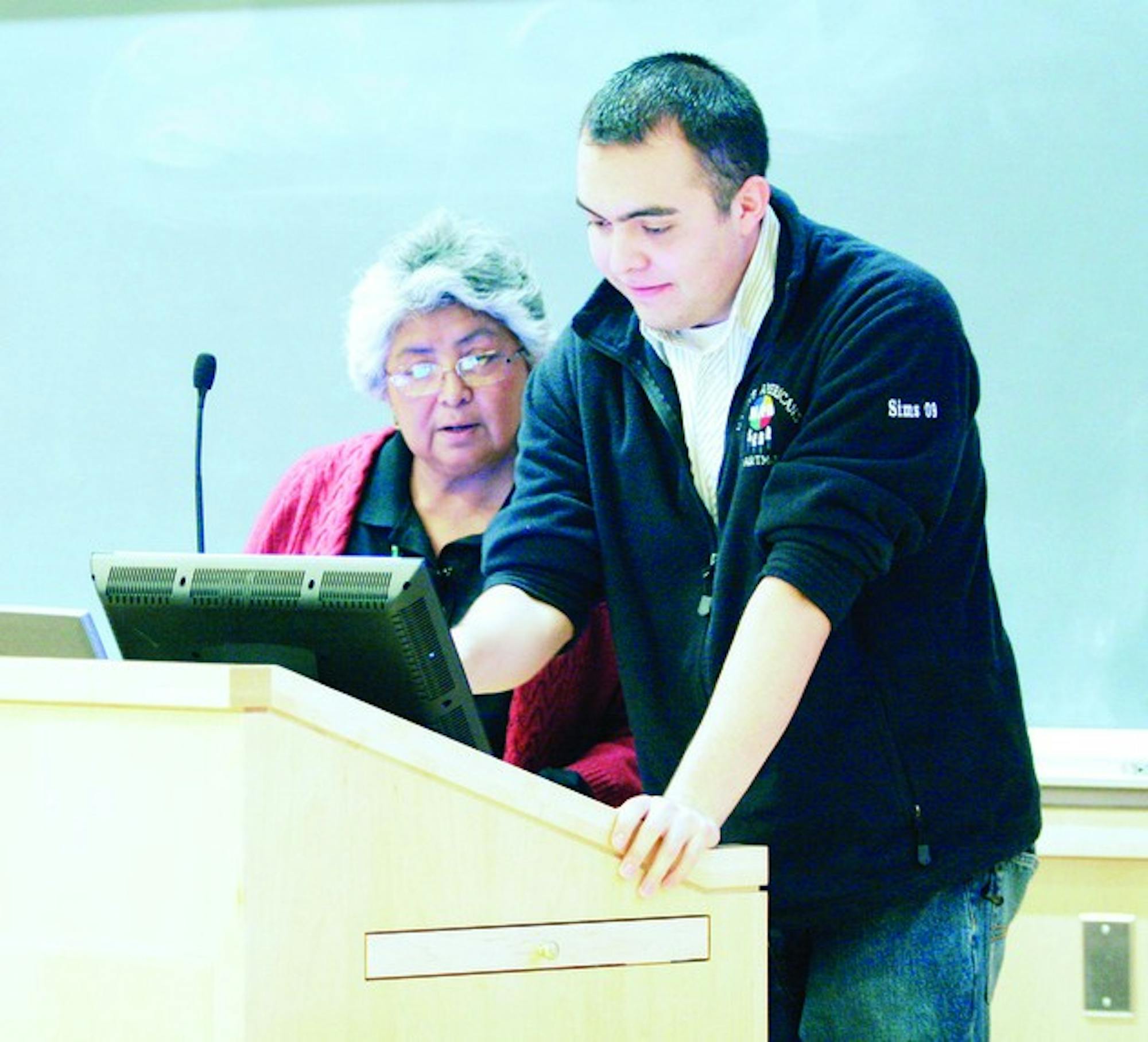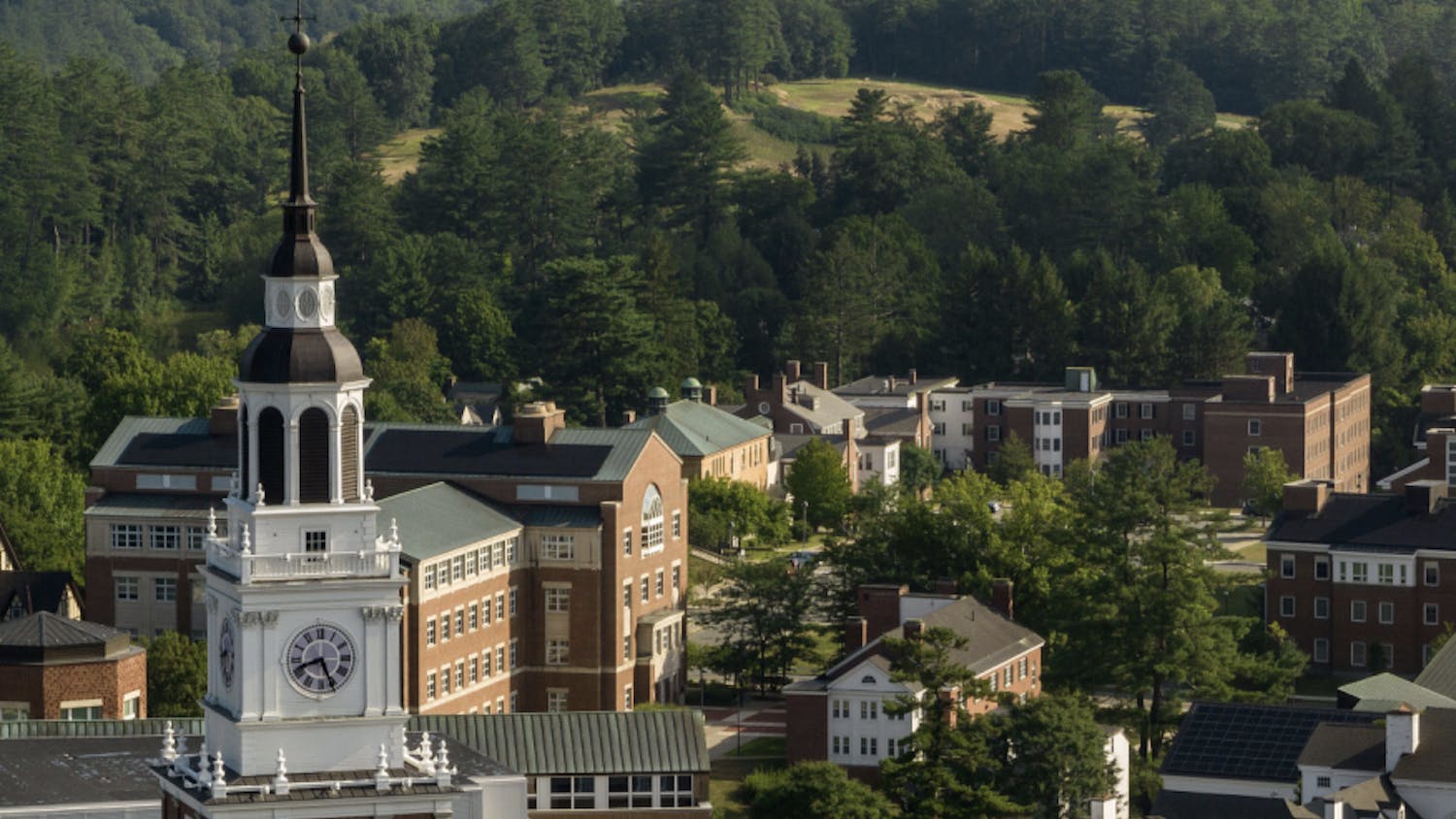Dartmouth's celebration of Native American History Month was kicked off this week by the second annual First Nations Week speeches. The series of speeches, held from Tuesday through Friday, focused on the importance of retaining Native identity through cultural, land and language ties.
First Nations week was developed by Native Americans at Dartmouth last year as an opportunity for both Native and non-Native students to interact with and learn from prominent leaders in the Native American community. This year's speeches centered on contemporary issues in Native American culture, including language preservation, the role of the state in acquiring indigenous status for tribes and the restoration of indigenous land claims.
Christine Sims, assistant professor of department of language, literacy and socio-cultural studies at the University of New Mexico's College of Education and a Native Pueblo of Acoma, emphasized the importance of such a week.
"We planned this for our Native community," Sims said. "It's a chance for them to interact with Native leaders. For the rest of the Dartmouth community it's important because unless they knew before or have taken a NAS [Native American Studies] class, they aren't going to know about these issues."
Sims is the mother of Aaron Sims '09, co-president of Native Americans at Dartmouth.
The four speakers involved in the program this year were prominent figures in the Native American community, including Byron Mallot, a former president of the First Alaskans Institute and the Alaskan Federation of Natives.
Mallot spoke Thursday night on the importance of retaining pride in one's Native identity, because the connection between Native Americans and their indigenous roots, he said, is ultimately unbreakable.
In her speech on Tuesday, Sims touched upon some common misconceptions that many non-Natives have towards Native Americans; specifically that Native cultures are extinct, dead and static.
Sims said that her speech was inspired by a comment made in a letter published in the Dartmouth Alumni Magazine earlier last week, which suggested that Native Americans should give up their stagnant Native cultures in favor of the clearly superior Western culture. In refutation of this claim, Sims emphasized that Native culture does evolve.
Sims, who works with Native language revitalization, concluded her speech by noting that recently, knowledge of Native languages in Native youths has decreased -- not, as is generally assumed, because of a natural progression, but because of specific U.S. governmental policies.
She cited the United States' ongoing practice of forcibly moving Native American youths from their tribal communities and placing them in Western culturally focused boarding schools as evidence of this. Sims said that this policy is intended to replace the students' Native culture with the perceived superior Western culture.
Native Hawaiian and associate professor of anthropology at Wesleyan University, Kchaulani Kauanui, also addressed the conflict between tribes and government in his speech on Wednesday. Kauanui spoke about new legislation that pushes for Native Hawaiians to be afforded the same status as Native tribes are in North America, which Kauanui said is merely deceptively promising.
Native Hawaiians, Kauanui said, are being deceived into surrendering their legally strong claims to national sovereignty in exchange for the status of a dependent domestic nation.
Aaron Sims said he considered the week a success, as each event saw attendance by between 40 and 50 students. He was disappointed, however, by the lack of diversity within the crowd, the large majority of which was Native American.
"I'd like to see more of the rest of the community there," Sims said.
The last speech of the series, "Telling Stories and Resistance: Kiowa Ledger Art and Painting 1875-1950," will be given by Jenny Tone-Pah-Hote, a Native Kiowa, on Friday in Carson L01.




